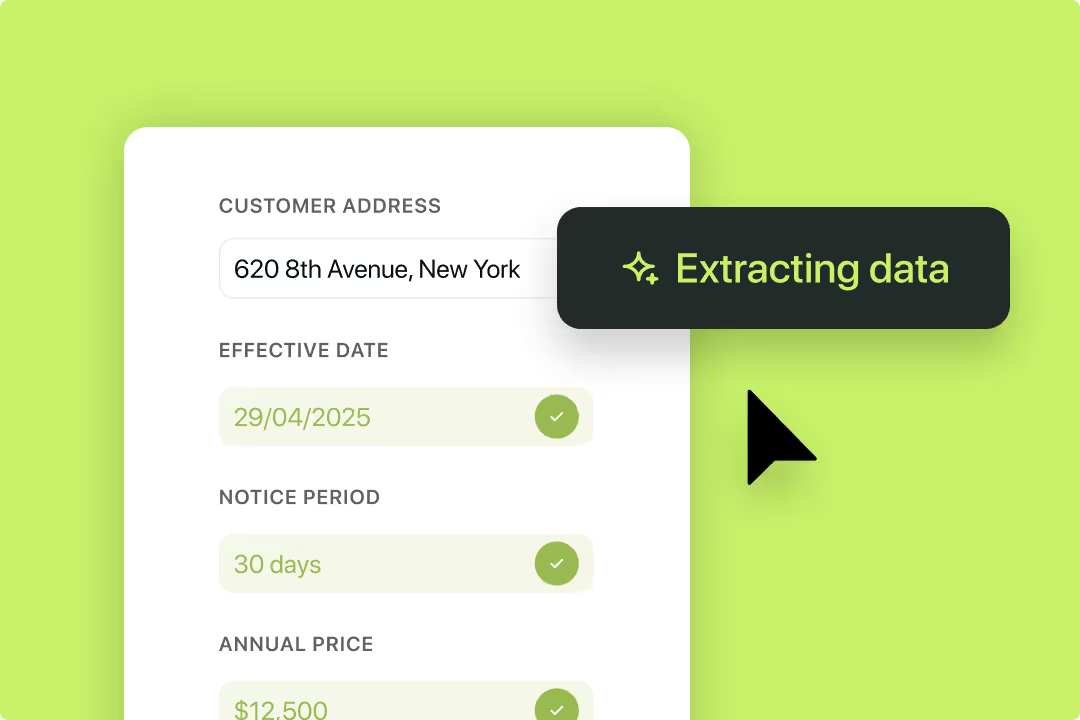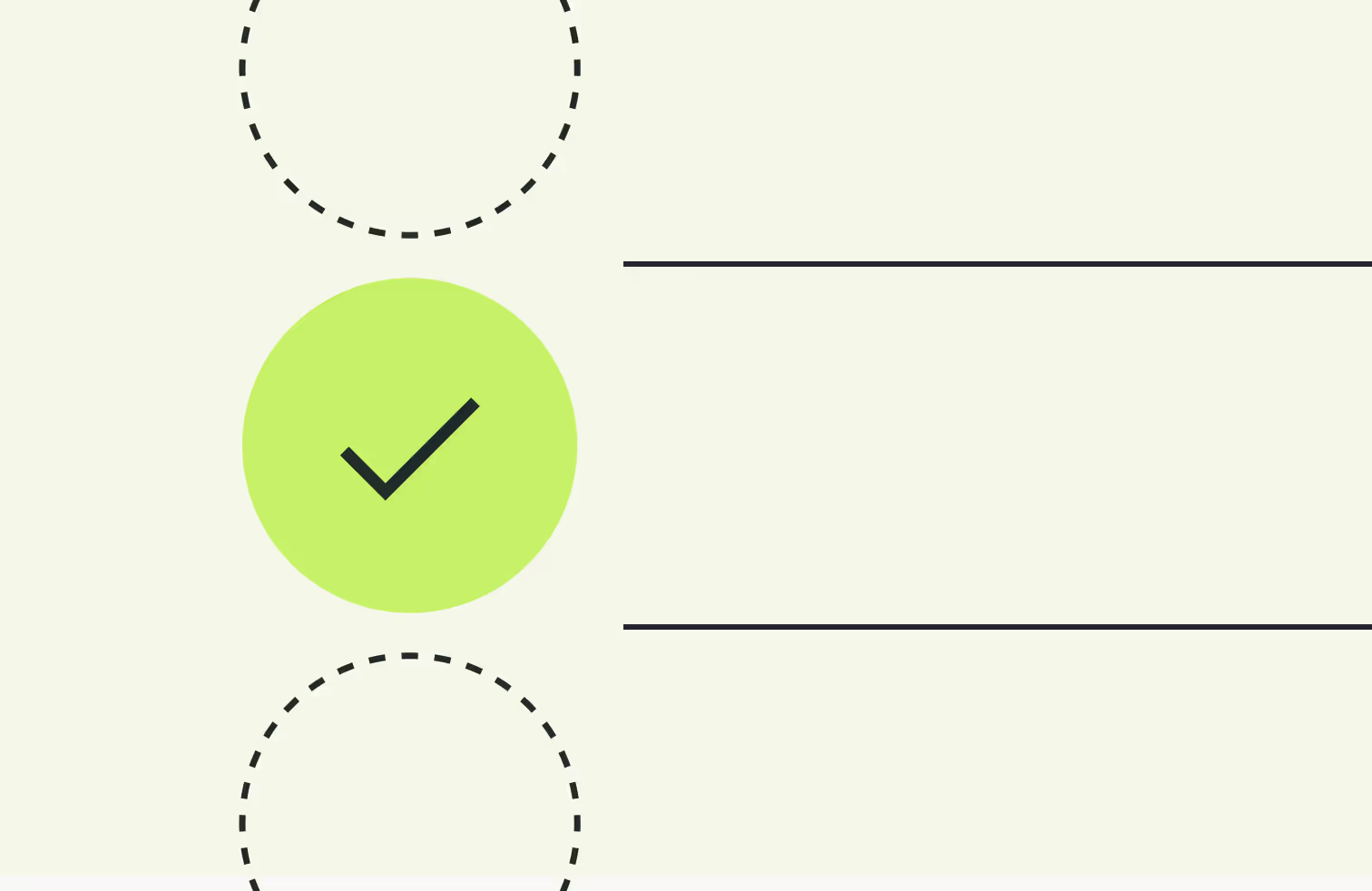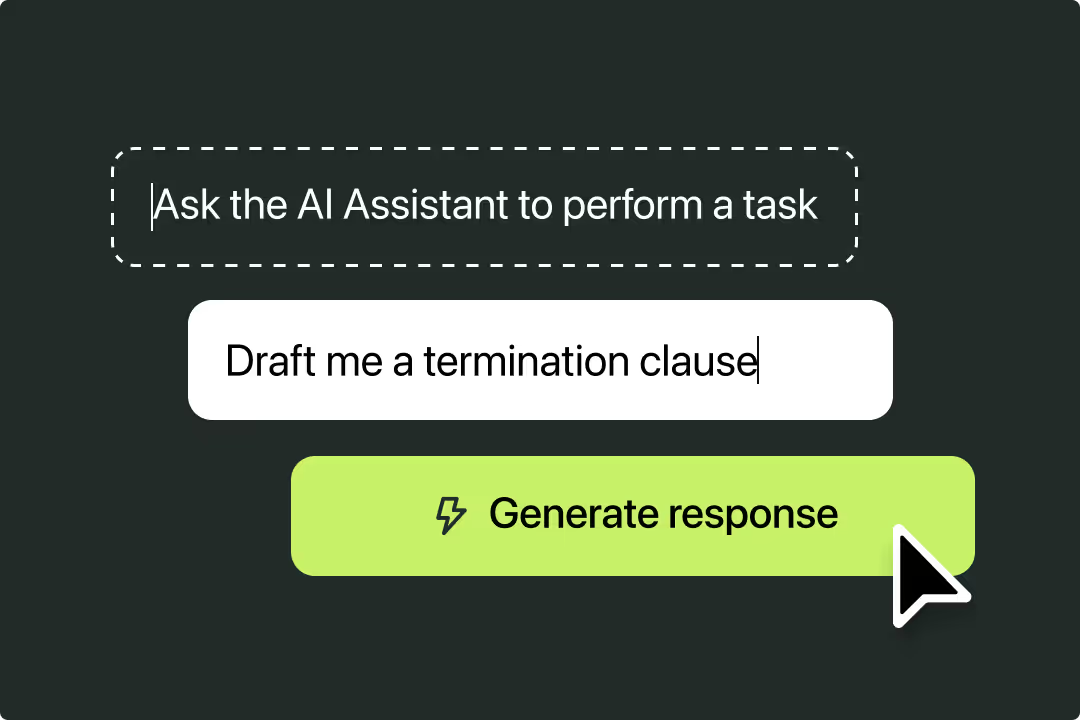Solutions
Customer Support
Resources
Contracts are famously difficult to read and understand. They’re lengthy documents with lots of legal jargon and complex wording. Contract abstraction enables businesses to cut through this noise and gain visibility into the data points that really matter in a contract.
In this guide, we'll cover everything you need to know about contract abstraction, from how it works to how it can be automated in 2026.
Contract abstraction describes the process of extracting and summarizing important information from a contract.
This information can include anything from parties’ contractual obligations to payment terms and contract renewal dates. Once reviewed and recorded, this information is captured in a format that’s easy to read and digest: an abstract.

Contract abstraction is useful because it enables you to understand and track your contracts at scale, rather than having to read through each contract in its entirety to identify the important information.
It’s also useful because it makes it easier for businesses to share key information about contracts with non-legal stakeholders. This is because they can provide a short, simplified version of the contract (the abstract or contract summary) that cuts out legal jargon and only captures the most prominent data points.
This, in turn, empowers teams to make better informed decisions about the contracts they’re entering into.
Before you can leverage contract abstraction, you need to establish what information you want to abstract from the contract and what format you want this information captured in. This scope is usually defined by in-house legal teams.
A contract manager or legal professional will then review the contract in detail. They’re tasked with understanding the implications of the contract’s terms and the information covered. If contract abstraction is outsourced, the contract is reviewed by an external party instead.
Once you’ve reviewed the contract, all of this information will need to be translated into a contract abstract. The abstract should summarize the most important obligations and data points in a contract, making it easy for other stakeholders to understand the broad principles of the contract without reviewing it themselves.
What’s recorded and how it’s presented will depend on what you decide when outlining the scope of the abstraction.

The process we just described was a traditional approach to contract abstraction, and it presents a few common challenges as a result. Let's run through these now.
The most obvious challenge with the process we just described is that it’s extremely manual. Not only does every routine contract need to be reviewed by a lawyer, but that lawyer needs to set aside time to capture the information in a contract abstract too.
In an environment where 69 per cent of lawyers report being buried in low-value work, it’s easy to see how contract abstraction can quickly become a burden for lean in-house legal teams.
As we mentioned at the start of this article, contracts are notoriously difficult to read and understand. Unless the contracts are written in plain language from the start, this makes it hard for other departments in the business to understand and create accurate abstracts for their contracts.
In other words, the complexity of contracts means that contract abstraction is often a task reserved for legal professionals - not contract owners.
Fortunately, the introduction of generative AI has empowered businesses to automate the contract abstraction process, generating contract abstracts in a matter of seconds.
Juro’s AI can be used to summarize contracts and present them in formats that suit you. This means that you can ask Juro’s AI Assistant to generate a contract abstract for you while also defining exactly what information you want captured through the contract abstraction process.
To do this, Juro users simply open their contract and prompt the AI Assistant to summarize the contract, or create a contract abstract that covers certain data points. Once they’ve hit ‘Generate’, Juro’s AI Assistant will generate a contract abstract for the agreement they have open.

By automating the contract abstraction process, legal and business teams can reduce the time they spend manually reviewing routine contracts. This time can be spent on higher-value tasks instead.
But the best thing about Juro is that it’s not a point solution. Juro can be used to streamline and drive efficiency across the entire contract lifecycle.
Juro users can also automate contracts within the platform. Rather than drafting them from scratch, Juro users can generate contracts using automated contract templates, or by prompting Juro’s AI Assistant to draft the contract (or individual terms) for them.
Once they’ve created the contract, Juro users can then create, collaborate on, sign, execute and manage contracts within the same platform. This empowers you to agree contracts end-to-end without leaving your browser or paying for other tools.
{{quote1}}
Juro’s AI contract collaboration platform empowers businesses to agree contracts up to ten times faster than traditional tools. If you’re interested in joining the 6000+ companies that already use Juro to power their contracts, fill in the form below for a personalized demo.

Lorem ipsum dolor sit amet, consectetur adipiscing elit. Suspendisse varius enim in eros elementum tristique. Duis cursus, mi quis viverra ornare, eros dolor interdum nulla, ut commodo diam libero vitae erat. Aenean faucibus nibh et justo cursus id rutrum lorem imperdiet. Nunc ut sem vitae risus tristique posuere.

